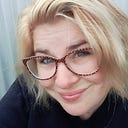About writing your self help/hard luck story memoir
In the last six months I have read three types of self help books.
- A straight talking obviously self-help book
- How my hard luck story can apply to your life
- Telling my hard luck story in the second person
ARGH!
The first type is probably the best. Most writers in this category have seen something which they think could help someone else, and they write a book with steps to help the reader out.
The second type, a hybrid, if you will, is sometimes interesting, but often full of tangents. These people have great intentions.
The final type isn’t often written by people who consider themselves writers, though they are writing a book. It can be long and tedious, it can be juicy and interesting, but most of all, it makes a reader sit back and think ‘gee, maybe my life isn’t so bad after all… but this lady is writing some stuff I can hardly believe even happened!’
I highly recommend the hybrid story, and the best example I have seen of this is using a life story to illustrate the message. Say you want to tell your readers about creating boundaries between business and friendship. You can tell a story from your own life, or interview someone, who has had an experience they are willing to share. Good or bad, it doesn’t really matter, as long as the message is getting across.
You come across a self help book, and you realize that no one has ever challenged you quite this way before. You should know that you may pass through this fork in the road again, probably after the death of your best friend who was tragically killed a few moments after you passed the fork in the road for the first time, squished by a flying billboard, which happened to feature the face of your ex-boyfriend’s new girlfriend. You’ll never forget her face…
PLEASE DO NOT WRITE THIS RUBBISH.
Sorry, and no disrespect to the made up BFF. What happens here is often the writer means to write about themselves, but they feel more comfortable talking in the second person narrative. Then this becomes preaching to the reader, and includes them on journeys which aren’t necessarily those they need to take.
If you are writing a book and you find you are beginning a lot of sentences with ‘you’, I challenge you to change these to ‘I’. Microsoft Word even has a nifty feature called ‘find and replace’ which will do this for you.
The thing about writing self help books is that they need to be reasonably broad. Few of your readers will have personal experience with all of the things that have happened in your life. Even so, this doesn’t give the writer some type of moral high ground — my life has been more difficult than yours, blah blah blah.
If you have lived and succeeded through some difficult trials and tribulations, a memoir, rather than a self help book, is probably a better way to go. For one, you have a ready made story. More importantly, your reader may learn a lot more through reading your story, rather than engaging in some self-help-advice which you found may apply to them.
There is a great saying about ‘owning your mistakes’. All that’s good and well, until a writer decides that they want to share their mistakes so others can learn from them. Tricky.
What I have found, as someone who makes a lot of mistakes, is that people outside of those mistakes don’t care too much on how they are resolved. Also, when those people experience a similar problem, the last thing they want to hear is someone saying ‘Gee whiz, that happened to me, here’s how I fixed it!’ Circumstances differ. Relationships vary. I challenge all self help book writers to share their mistakes, but allow your readers to make their own — it really is okay.
I haven’t really spoken about the first example I gave — the classic self help book. This book features far fewer personal anecdotes about one’s grandchildren and the time the ants invaded the company picnic. These books often feature stories about people who are in the situations being worked through. Often these are not the same people popping up, each ‘character’ is new and has something to share that is specific.
Finally, dear reader/self help writer, please check out books in your category. Libraries are free and have plenty of these books floating around. Amazon is filled with self help titles, but using the books from the library is probably more of a help.
Happy writing!
